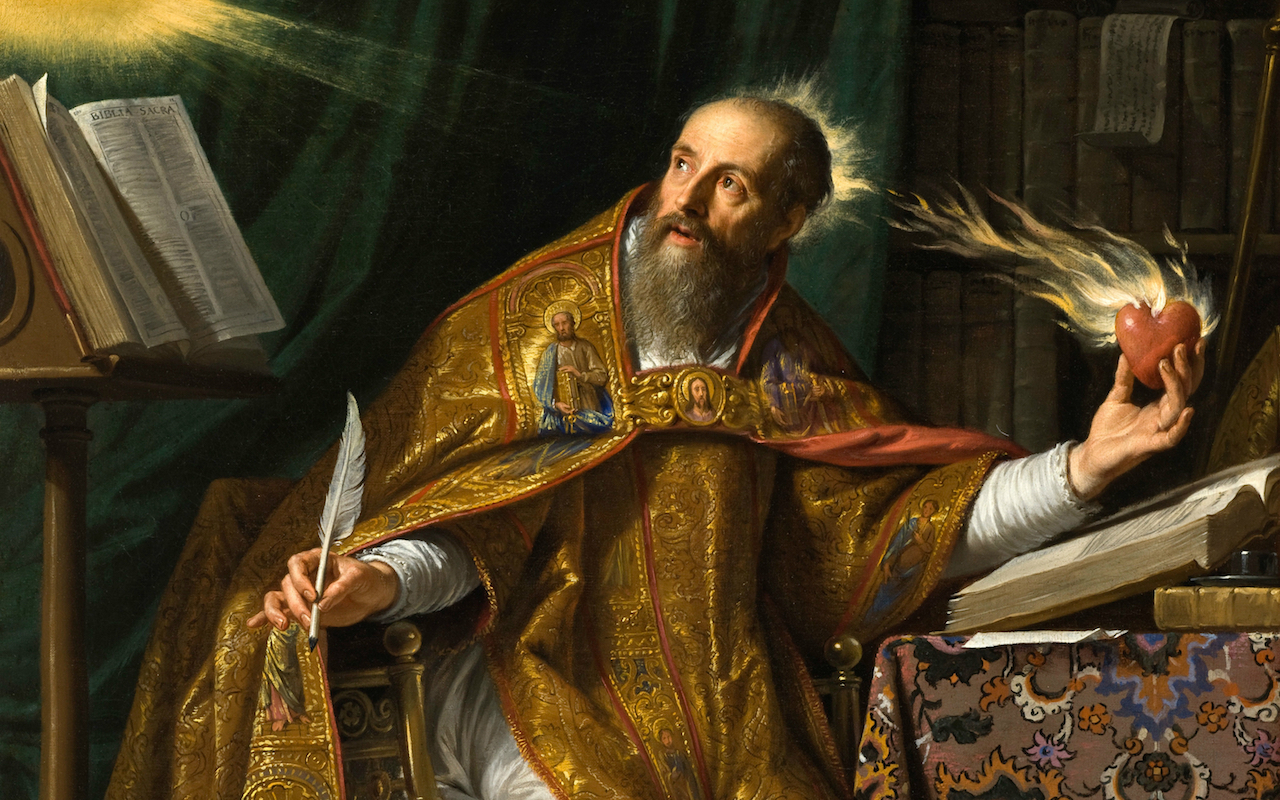Let me die to myself and live in Thee,
And accept whatever happens as coming from Thee.
Those lines from the Petitions of St. Augustine summarize gratitude, thanksgiving, perfectly. The first line tells us how to respond to Christ: to die to ourselves and live in Him. The second tells us why: whatever happens comes from Him.
Whatever happens. That includes the things we call “bad”: stolen elections, Christmas Parade Massacres, novel Coronaviruses, vaccine apartheid, police beatings of the unvaccinated and unmasked, crimes both petty and heinous, illness and injury, betrayal and disappointment.
We give thanks to God for these because He made all. He made the sources of our sufferings, just as He made Pilate and the Pharisees and the Roman soldiers who drove the nails into Christ’s hands and feet and without whom the scriptures would not be fulfilled. He made them and they are His.
Also, the things we call “good”: friends who invite us to Mass, priests who guarantee us pardon, absolution, and remission of our sins, the twenty-dollar bill we find in the pocket of a jacket we haven’t worn since last winter, the strangers who post the perfect quip on social media, the dog who rests his chin on our knee and looks into our eyes as if he is seeing his savior, the wife who cares quietly sacrifices years of her life for our peace and our children’s futures, the citizens who risk their lives and livelihood to ensure justice is served by their jury verdicts, the business leaders who stand between a cruel government and their faithful employees, the religious who leave the world to pray for mercy for those who don’t, the man who steps out of line to open the door for a stranger struggling with packages at the UPS store.
All these little things that go unnoticed are from Him.
Only by dying to ourselves and to this world can we get beyond bad and good to see it’s all good because it all comes from God.
That’s not to say our fight for justice ends when we die to ourselves. St. Augustine did not stop preaching after writing his Petitions. Rather, dying to ourselves, living in Christ, and recognizing the bad and the good as gifts from God inspires gratitude to Him for guiding us toward Him and away from this world that always ends in death.
Nor does it mean we call bad things good. Bad things, like murdering innocents on a Sunday afternoon, are not good just because their perpetrators come from God. Instead, with God’s graces, we begin to realize that gratitude and pain are not mutually exclusive. The grace of humility allows us to suffer without knowing why. And only through this humility. The gift of faith, and not our own intellect, allows us to simultaneously feel horrible pain and intense gratitude.
Jesus revealed Himself as the way, the truth, and the life—the alpha and the omega. There is nothing else. He replaced the limiting of symbol of the circle, which cannot grow, with the cross, whose arms extend forever in all directions. The ring or circle is exclusive: things are either within the ring or outside of it. But the arms of the cross embrace all. Everything is within, and nothing is without. The alpha is the horizontal, the omega the vertical: infinite lines forming an infinite plane on which we play out our lives both now and in eternity.
Therefore, we give thanks, not only for the things that please us here and now, but for all things. We pray for the grace to die to this world so that we may live, beginning this moment, on that infinite plane, embraced in the arms of the cross, eyes fixed on the Creator and in awe of all His creation.
Jesus, let me give thanks for all that comes from God and recognize that all comes from God.

